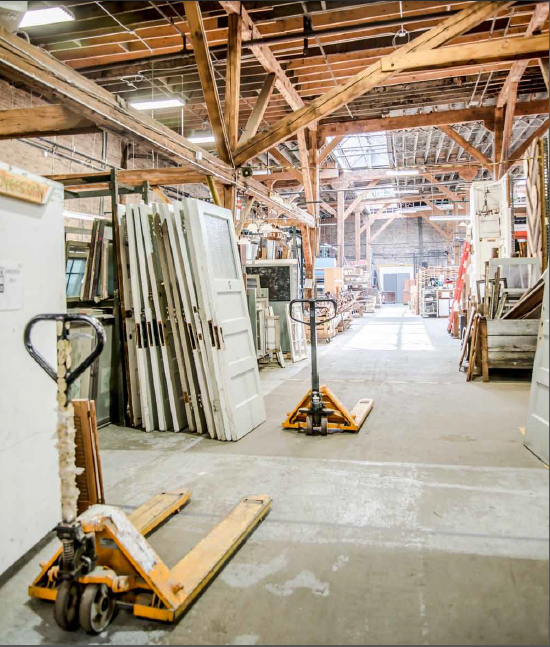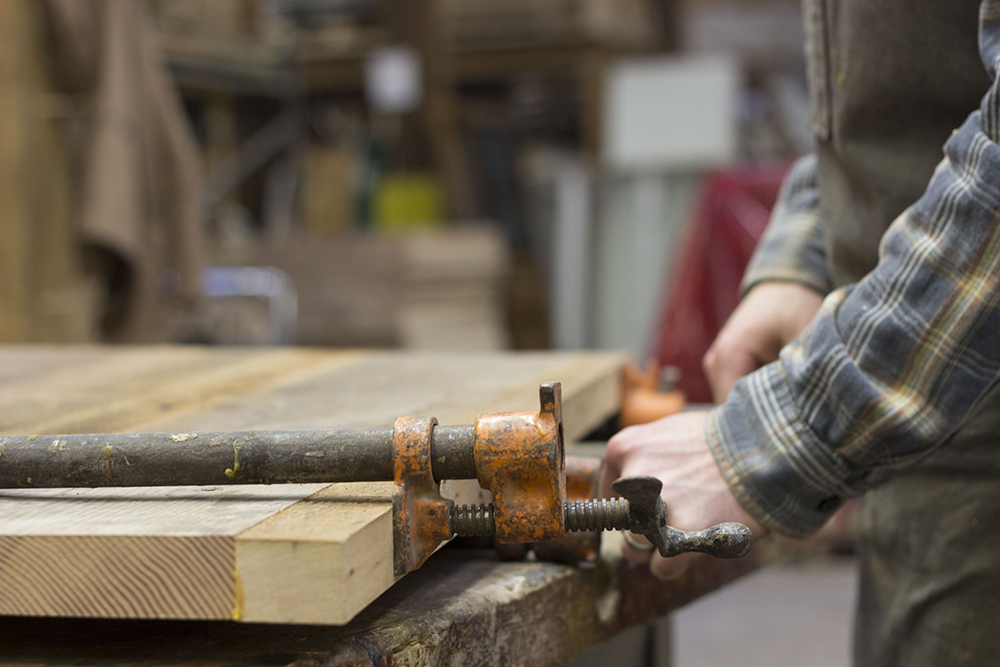Summary
Millions of pounds of building materials are thrown away each day. Many of these materials completely reusable, but go to the landfill for lack of an alternative. Landfills are finite and we are running out of space. In Cook County, IL, there are no more operating landfills. This means waste is sent further away, negatively impacting communities where new landfills are located. The additional distance also means higher disposal costs for contractors, demolition companies, residents and business owners. Rebuilding Exchange is a nonprofit social enterprise that sees these materials for the community assets they are, and leverages them to support the local economy, create jobs, and inspire creativity.
At 534 million tons, Construction and Demolition (C&D) debris was more than double the amount of municipal solid waste generated in 2014, and over 90 percent of the C&D materials were generated through demolition. In Cook County, C&D materials are the largest component of the waste headed to landfills. Rebuilding Exchange (RX) created a market-based solution to address this growing problem. We divert about one million pounds of building materials headed for the landfill each year, and turn those liabilities into assets. We do this through three program areas: our retail warehouse which provides materials at a greatly reduced cost to the public, low-cost workshops to educate the public on how to use the materials and general sustainability practices, and a custom fabrication and production line which innovates with our materials to demonstrate potential of the materials.

Rebuilding Exchange’s efforts to turn waste liabilities into assets is not just a conversion to a financial asset for our organization. These materials become assets to Chicago area residents, businesses, artists, students, and individuals with barriers to employment by strengthening the local economy by introducing a local, circular economy. Through our three programs we can provide access, education, and diverse products and services to various market segments in over 60 Chicago zip-codes and hundreds of neighboring zip-codes, reflecting a wide range of racial and socio economic demographics. By offering a site for free drop off of tax-deductible used materials and a low cost on-site pickup service, RX saves the public money, reduces the environmental effects of the landfill and transportation, and keeps our community's assets in the community.
Just like we believe that there is hidden value in materials, we see the potential in everyone. A core part of what Rebuilding Exchange does is provide job training to people with barriers to employment. We provide transitional jobs training, where trainees receive forklift and OSHA certification, six months of relevant work experience and classroom training, a positive and supportive work environment, and a solid reference from our organization. Through our partners, they also receive wraparound social services and job placement assistance. In December 2016, we celebrated our 103rd graduate.
We are a nonprofit that can support over 80 percent of our program costs and overhead through revenue generated by alleviating a societal problem. In addition to the education, product innovation, retail offerings, and job training, we have created jobs in the community. Many local artists and businesses rely on our inventory to maintain their studios and companies. We also partner with a deconstruction company whose model relies on us accepting their clients' materials as a tax-deductible donation. In addition, we provide jobs to 20 individuals, five of whom are our former job trainees.
RX developed a set of metrics aligned with our mission statement. The metrics are grouped into four categories: People Growth, Environmental Impact, System Innovation & Influence, and Market Competence & Performance. Within People Growth, we measure the number of individuals trained through our job training efforts, the number of people educated and influenced through our workshops, tours, and presentations. For Environmental Impact, we measure the tons of materials diverted from the landfill. System Innovation & Influence is tracked through the breadth of partnerships we build, policy changes we inform or inspire, models replicated, and tools created to better understand the market. Within Market Competence & Performance, we use our sales data to understand this growing market and make informed decisions on how to scale our impact.
The availability of quality building materials at drastically reduced prices allows low-income residents to improve their homes in ways they could not with other building material providers. Our workshops, tours, and presentations are in high demand as individuals do not have many other places to learn about practical and creative reuse and do it yourself (DIY) sustainability. Our job trainees learn warehousing, logistics, carpentry, and retail skills in a small, supportive environment with on-staff mentors who formerly completed the same program. Our innovation with hard to find materials provides restaurants, businesses, and homeowners with unique pieces that cannot be easily replicated.
RX success has made an impact on thousands of people in Chicago and beyond. We have inspired similar organizations, changed the perception of this waste stream, and even helped to make a new county ordinance requiring material diversion feasible. The Demolition Debris Diversion Ordinance in Cook County requires a percentage of certain demolition projects to be diverted for reuse, and RX makes it easy for contractors to comply with these requirements while still providing benefits to the community. This ordinance has inspired other communities in the U.S. and Canada to research similar endeavors, and has the potential to change the building material landscape.
References
"Advancing Sustainable Material Management: 2014 Fact Sheet." EPA.gov. November. Accessed March 17, 2017. https://www.epa.gov/sites/production/files/2016 11/documents/2014_smmfactsheet_508.pdf.
Institute, The Delta. 2012. "Cook County Waste Management Plan 2012." Cook County Blog. Accessed March 17, 2017. https://www.slideshare.net/cookcountyblog/2012-cook-county-solid-waste-plan-as-approved-by-the-cook-county-board.



